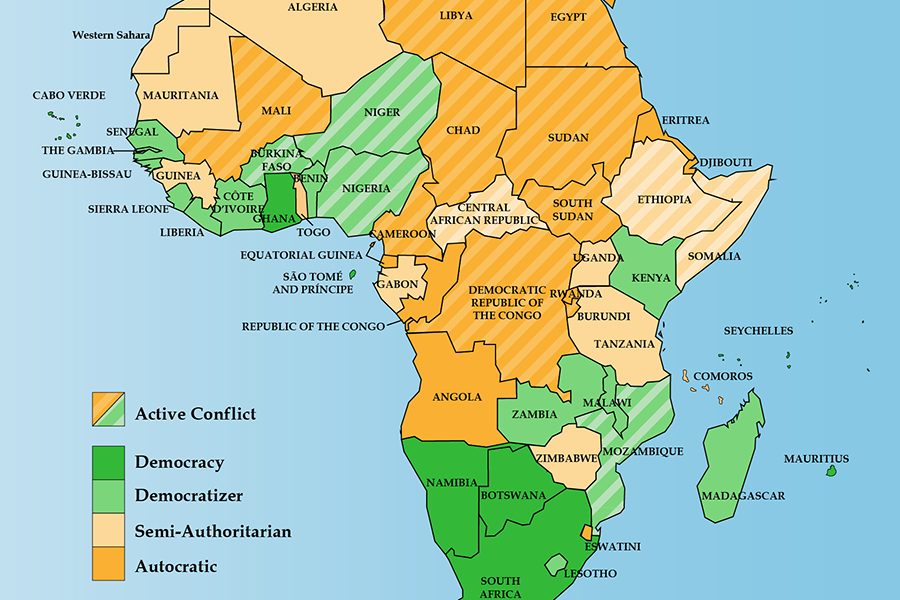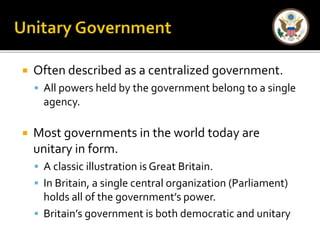Ever wonder what happens when you mix politics with economics? No, it’s not a recipe for disaster (although some might argue otherwise). In this article, we’ll be diving into the wild world of autocratic and dictatorial governments to see how their economic outcomes stack up. Will it be a battle of the titans, or more of a friendly game of economic tug-of-war? Join us on this journey as we compare and contrast the financial fiascos and monetary mishaps of these power-hungry regimes. Let the games begin!
Key Differences Between Autocratic and Dictatorial Governments
When it comes to autocratic and dictatorial governments, there are some key differences that set them apart. Let’s break it down, shall we?
- In an autocratic government, the leader wields a great deal of power but still has some semblance of checks and balances in place. However, in a dictatorial government, the leader has absolute power and rules with an iron fist. It’s like the difference between a strict parent and a tyrannical dictator!
- Autocratic governments often have a facade of democracy, with some elections and a veneer of public input. On the other hand, dictatorial governments don’t even bother pretending to care about what the people want. It’s all about the dictator’s whims and desires.
- Autocratic leaders may listen to their advisors and consider their input before making a decision. Dictators, on the other hand, surround themselves with yes-men who are too scared to disagree. It’s like having a bunch of sycophants constantly whispering in your ear!
So, while autocratic and dictatorial governments may seem similar on the surface, the devil is in the details. Whether you prefer the subtle manipulation of an autocrat or the outright oppression of a dictator, one thing is for sure – neither is a walk in the park!
Analysis of Economic Policies in Autocratic Regimes
When it comes to economic policies in autocratic regimes, it’s safe to say that things can get pretty interesting. These rulers are known for making decisions that often leave economists scratching their heads (and pulling their hair out). Let’s dive into the chaotic world of economic policies in autocracies and see just how wild things can get.
First off, let’s talk about the classic move of implementing price controls. Because who needs supply and demand when you have a dictator calling the shots? Prices are set arbitrarily, leading to shortages, black markets, and a whole lot of confusion. It’s like playing a game of economic roulette, but instead of betting on red or black, you’re betting on whether you’ll be able to find toilet paper at a reasonable price.
Next up, we have the wonderful world of corruption. In autocratic regimes, corruption isn’t just a side dish – it’s the main course. Cronyism runs rampant, with the ruler’s friends and family members reaping all the benefits. Meanwhile, the rest of the country is left wondering why the economy is in shambles. But hey, at least the ruler’s pals are living large, right?
And let’s not forget everyone’s favorite economic policy in autocratic regimes: unpredictability. One day, the ruler is all about privatization. The next day, it’s all about nationalization. It’s like trying to keep up with a soap opera – just when you think you know what’s going on, the plot twists and turns in a direction you never saw coming. Who needs stability when you have autocrats running the show?

Impact of Centralized Decision-making on Economic Outcomes
When decision-making power is concentrated in the hands of a select few, the economic outcomes can be both predictable and disastrous. Let’s take a closer look at how centralized decision-making can wreak havoc on the economy.
One major issue with centralized decision-making is the lack of diversity in perspectives. When a small group of people are making all the decisions, there is a limited range of ideas and strategies being considered. This lack of creativity and innovative thinking can lead to stagnant economic growth and missed opportunities for development.
Furthermore, centralized decision-making can lead to a disconnect between the decision-makers and the people affected by their choices. When decisions are made in a boardroom far removed from the realities of everyday life, the consequences can be dire for those on the ground. This lack of empathy and understanding can result in policies that benefit a few at the expense of the many.
Overall, the can be summed up in one word: disastrous. To avoid the pitfalls of concentration of power, it’s essential to embrace a more inclusive and collaborative approach to decision-making.

Challenges of Implementing Market Reforms in Dictatorships
Market reforms in dictatorships can be quite a handful to implement, but hey, nothing good comes easy! Here are some of the challenges you might face:
- Resistance from the ruling party: Dictators don’t like change, especially when it threatens their grip on power. Convincing them to embrace market reforms can be as easy as herding cats.
- Lack of transparency: In a dictatorship, transparency is about as rare as a unicorn. Good luck trying to implement market reforms without everyone knowing about it!
- Corruption: Market reforms in a dictatorship can be like trying to teach a pig to sing – it wastes your time and annoys the pig. With corruption rampant, getting anything done can feel like pushing a boulder uphill.
But hey, don’t let these challenges discourage you! With a little bit of wit, charm, and maybe a sprinkle of luck, you might just be able to implement those market reforms against all odds. Who knows, you might even become the hero of the dictatorship – just watch your back!

Inequality and Corruption in Autocratic vs. Dictatorial Systems
In autocratic systems, inequality and corruption are like two peas in a pod – they go hand in hand, skipping through the fields of oppression together. The ruler and their cronies enjoy the fruits of the people’s labor, while the rest of the population scrapes by on crumbs. It’s a classic tale of the haves and the have-nots, with a twist of authoritarianism thrown in for good measure.
On the other hand, in dictatorial systems, inequality and corruption are more like frenemies – they pretend to hate each other, but secretly they’re BFFs. The dictator may talk a big game about equality and justice, but behind closed doors, they’re lining their pockets with ill-gotten gains faster than you can say ”embezzlement.” It’s a cat-and-mouse game of power and greed, with the people caught in the middle.
Regardless of whether you find yourself in an autocratic or dictatorial system, one thing is certain – inequality and corruption are like the annoying neighbors who never leave. They lurk in the shadows, whispering sweet nothings about power and privilege, while the rest of us try to navigate the rocky terrain of oppression and injustice. But fear not, dear reader, for in the battle against inequality and corruption, there is always hope – and maybe a little bit of sarcasm to lighten the mood.
Case Studies: Successful Economic Models in Autocratic vs. Dictatorial Governments
Let’s dive into some juicy case studies comparing successful economic models in autocratic and dictatorial governments. Brace yourselves, it’s about to get wild!
First up, we have Autocracia, a fictional nation ruled by the powerful and charismatic Emperor Bob. Under his iron-fisted rule, Autocracia has implemented a highly centralized economic system where all decisions are made by the Emperor himself. Despite the lack of transparency and accountability, Autocracia’s economy has flourished thanks to bold initiatives such as:
- Rubber Duckie Tax: A tax on imported rubber duckies that has generated massive revenue for the government.
- National Pillowfight Day: A national holiday that boosts morale and productivity by promoting teamwork and fun.
On the other hand, we have Dictatoristan, a fictional dictatorship led by the ruthless General Zed. Despite widespread oppression and human rights violations, Dictatoristan’s economy has also seen remarkable growth thanks to innovative economic policies such as:
- Mandatory Mustache Tax: A tax on all citizens without mustaches, incentivizing a hairy upper lip for the greater good of the economy.
- Surprise Labor Camp Lottery: A lottery where winners get to spend a week in a labor camp, boosting productivity and promoting social cohesion.
Prospects for Economic Growth and Development in Authoritarian Regimes
When it comes to economic growth and development in authoritarian regimes, the possibilities are as unpredictable as a cat in a room full of laser pointers. While some may view these regimes as stifling and oppressive, others see them as the perfect petri dish for financial success. Here are a few factors to consider:
One major advantage of authoritarian regimes is their ability to swiftly implement economic policies without the pesky delays of democracy getting in the way. Think of it as ordering takeout versus waiting for a five-course meal. With a leader who can make decisions faster than you can say “supply and demand,” the potential for rapid growth is as tantalizing as a freshly baked pie.
On the flip side, the lack of transparency and accountability in authoritarian regimes can lead to corruption running wild faster than a cheetah on a caffeine high. It’s like giving a toddler access to a candy store and expecting them not to make a mess. Without proper checks and balances, economic development can quickly go off the rails, leaving everyone scratching their heads and wondering where all the money went.
Despite these challenges, there is still room for optimism when it comes to economic growth in authoritarian regimes. With the right balance of discipline, innovation, and maybe a pinch of luck, these regimes can surprise us all with their potential to rise from the ashes and soar to new heights. It’s a bit like watching a superhero movie – you never know what plot twist might come next.
FAQs
Are autocratic governments more stable economically than dictatorial governments?
Well, that’s a loaded question! While both types of governments tend to concentrate power in the hands of one individual or a small group, the economic outcomes can vary. Autocratic governments may prioritize economic stability to maintain their grip on power, whereas dictatorial governments may focus on short-term gains over long-term stability.
Do autocratic governments lead to more economic growth than dictatorial governments?
It’s like comparing apples to oranges (or in this case, apples to evil dictator oranges). Autocratic governments may be more effective at implementing economic policies quickly, but that doesn’t necessarily translate to sustained economic growth. On the other hand, dictatorial governments may focus on enriching themselves and their cronies rather than investing in the overall economy.
Do autocratic governments have better control over inflation compared to dictatorial governments?
Hmm, that’s a tough one. Autocratic governments may have more control over inflation through strict regulations and centralized decision-making, but this can also lead to inefficiencies and corruption. Dictatorial governments, on the other hand, may be more prone to inflation due to reckless spending and mismanagement of resources. It’s a delicate balance between stability and chaos!
Which type of government is more likely to attract foreign investment?
Foreign investors beware! While both autocratic and dictatorial governments may offer lucrative deals and incentives to attract foreign investment, the risks of political instability and human rights abuses are always looming. It’s like playing a high-stakes game of Monopoly with a dictator who keeps changing the rules – you never know when you might end up in jail (or worse).
—
In conclusion: Pick your poison!
Whether you prefer the iron fist of an autocratic regime or the velvet glove of a dictatorial government, one thing is clear: both systems have their pros and cons when it comes to economic outcomes. So next time you find yourself debating the merits of authoritarian rule, just remember one thing – at least you’ll never have to worry about pesky little things like freedom and democracy getting in the way of economic growth. Happy governing!






